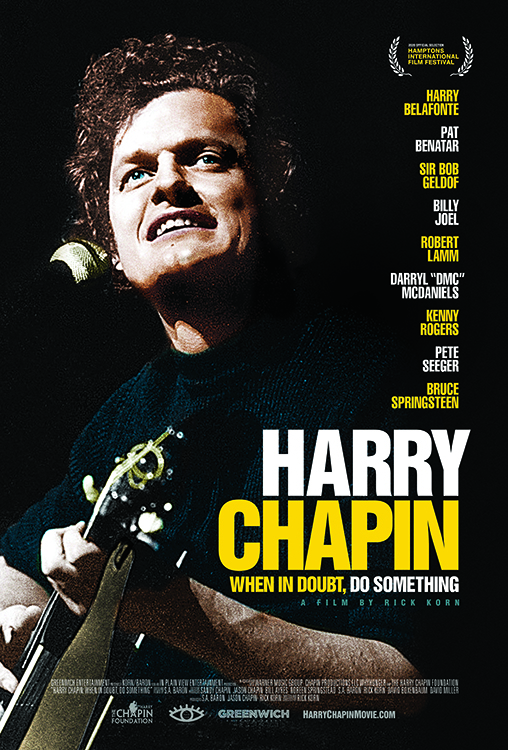Jason Chapin ’86 remembers his father, Harry Chapin, in a new film about the famous musician.
Sing along now to Harry Chapin’s heart-tugging hit “Cat’s in the Cradle”; you know the words: “The cat’s in the cradle and the silver spoon, little boy blue and the man in the moon….” That sweet, sad song from the 1970s has launched a million tears and 50 years of pop-culture references. But a new documentary, coproduced by his son Jason Chapin ’86, shows that Chapin’s hit songs may not be his most important legacy.
As the late Harry Chapin was topping the charts with hits like “Taxi” and “W.O.L.D.,” he was also throwing his considerable energy into humanitarian causes, especially global hunger. “My dad thought it was obscene that millions of people were food insecure,” Jason says. At the height of both his popularity and his activism, Harry Chapin was performing 200 concerts a year, half of them benefits, and giving much of his money away. “The money flows through me,” he says in archival footage in the film.

The documentary presents Chapin as a charming, committed, nonstop talker whose personal credo, “When in doubt, do something,” gives the film its title. As Harry’s older brother, singer Tom Chapin, says, “My brother wanted to be more than a great singer/songwriter. He wanted to change the world. And he did.”
Along with hunger and peace activist Bill Ayres, Chapin cofounded World Hunger Year (now WhyHunger) and persuaded President Jimmy Carter to create the Presidential Commission on World Hunger, on which he served. He also founded Long Island’s first food bank, which continues today as Long Island Cares/The Harry Chapin Food Bank.
Chapin’s fame was framed by tragedy when, at age 38, he died in a fiery car accident on the Long Island Expressway. Despite the drama of his life, a film about his career and devotion to social causes had never been made. Documentarian Rick Korn changed that. He enlisted Jason to assist in fundraising and connecting Korn to family members, musicians, and other key players in Harry’s life, among them Billy Joel, Pat Benatar, Robert Lamm, and Darryl McDaniels of Run-DMC. Longtime friend Sen. Patrick Leahy of Vermont says in the film, “If we could harness Harry’s energy, we could solve all the world’s problems.”
Another dominant chord is the influence of family, both the intellectual and musical family of Harry’s youth in Brooklyn and, later, as the father of five in a close-knit family. Jason and his four siblings share memories of their “action dad,” who loved playing and watching sports and who, despite a frenetic road schedule, was deeply involved in their lives. His widow, Sandy — who wrote the poem that became “Cat’s in the Cradle” — “gave Dad his best ideas,” Jason says.
As a kid, Jason took his dad’s fame in stride. “You only have one childhood, so it was all pretty normal to me,” he says. He was 17, about to begin his senior year in high school, at the time of his dad’s death. That fall, he applied early decision to Colgate, where he focused on economics and political science. While Jason didn’t inherit his father’s musical drive, he did inherit his desire to make the world a more equitable place. He has devoted his career to helping people get training and jobs to build economically sustainable careers. “I get to work with people who really care and for people who really need it,” Jason says of his role as director of workforce development at Westchester County Association in New York — where he lives with his wife, Christina Stafford ’89 Chapin, and their three children.
He also serves on the board of the Harry Chapin Foundation, which provides grants to support arts in education, community education, and sustainable agriculture programs.
Harry Chapin: When in Doubt, Do Something has made several best-of-2020 lists and is streaming on numerous platforms; proceeds go in part to the Harry Chapin Foundation and WhyHunger. “Our hope is that those who see the film look at my dad’s life and hear his message that everyone can do something,” Jason says. “Everyone can have an impact.”
